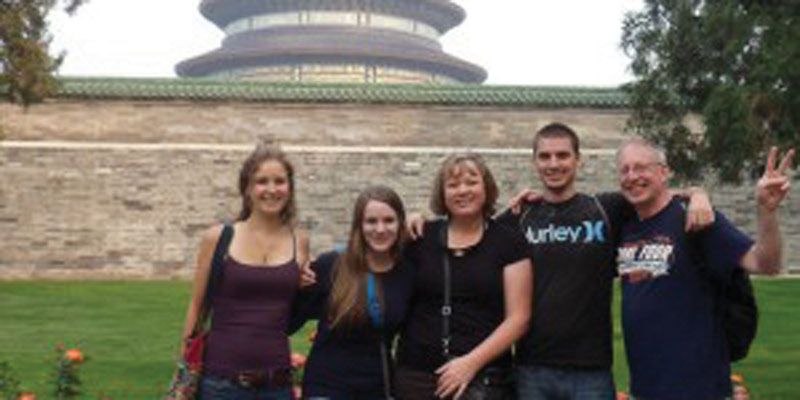Carbon concerns
When Eric Jamelske, an economics professor at UW-Eau Claire, realized the amount of denial and lack of concern about carbon emissions, greenhouse gases and climate change, he set a goal to do something about it. He began a project gathering public opinions on global climate change, measuring concern on the issue and how far citizens will go to fix the problem.
In the initial stages of his research about the emissions, Jamelske said he noticed the number of visiting scholars from China. He struck up a partnership with these colleagues to determine public opinion on climate change in China and the US — the two world leaders in carbon emissions.
Now, he and a group of students are spending much of the fall semester in China gathering opinions from college students and Chinese citizens with the help of Jamelske’s former colleagues and their student researchers. So far, he said, Chinese citizens seem to have a better handle on the problem.
“We’d really like to highlight the idea that people in the U.S. are just getting their information, not from science and reality, but through some media filter and political lens,” Jamelske said.
The survey asks whether the responder believes climate change is natural or human made and how big of a threat it is. An important question the survey calls attention to, Jamelske said, is whether people are willing to change their daily lives to prevent further damage. Personal economic decisions have a cost, he said.
“As an economist,” Jamelske said. “I’m interested in it because we choose how to power our society and how to create well-being and we chose fossil fuel because it’s inexpensive.”
While it’s inexpensive to use now, the effects of it will be expensive in the long run, said James Boulter, the director of the Watershed Institute for Collaborative Environmental Studies.
The institute strives to unite faculty and students in different areas of study and increase environmental awareness, according to its
webpage. Continued use of fossil fuels will cost more in climate disruptions and will cost more to fix, he said.
“When you add those two costs together the answer is we need to act,” Boulter said. “We need to act quickly, we need to act immediately.”
The attitude of the scientific community is not shared universally by the masses, Boulter said. Many do not see climate change as a problem when they experience something like an exceptionally cold winter, he said. However, data over longer periods of time and at a global scale show the change.
Wesley Meives, a senior economics major working on the research, said the government needs to get involved and create legislation to slow the climate change.
“The environment doesn’t get consideration in policy talks,” Meives said. “Why not use money now to curb, or do the carbon tax and try to clean up some of the emissions as well?”
Until change happens at that level, there are individual choices that can help make a difference, Boulter said. Recycling a single aluminum can won’t make much of a difference, but recycling every can you use for a year can start to, he said. Making the decision to walk or bike instead of driving can help curb emissions as well.






